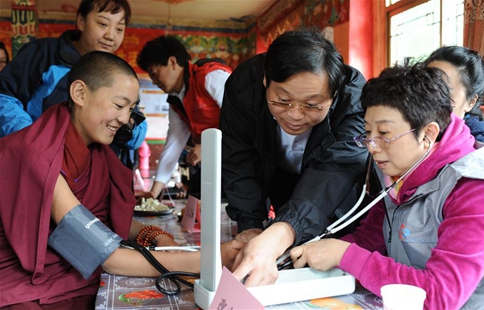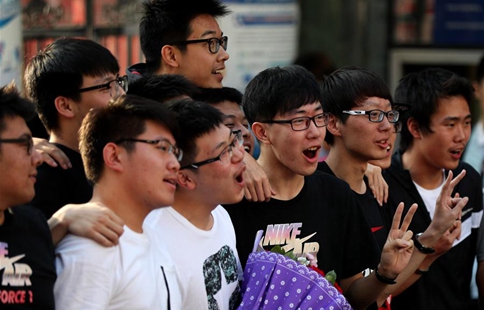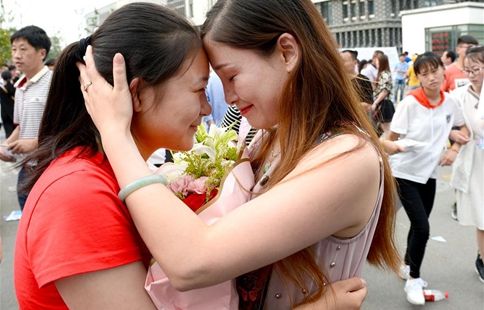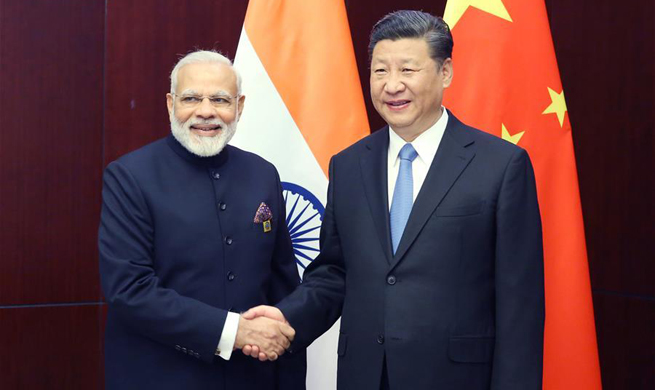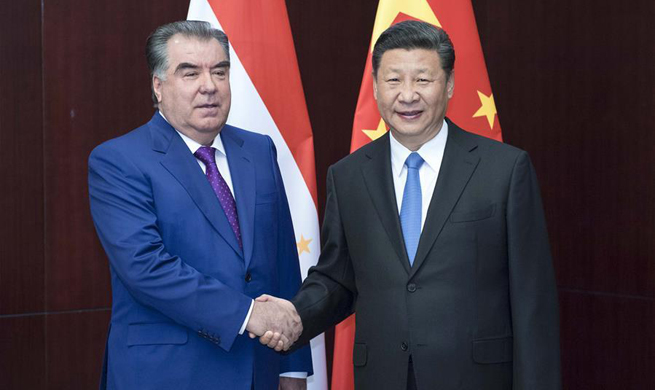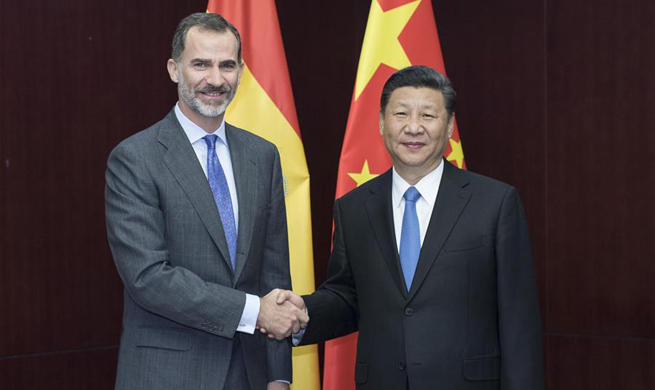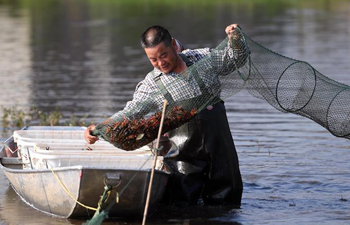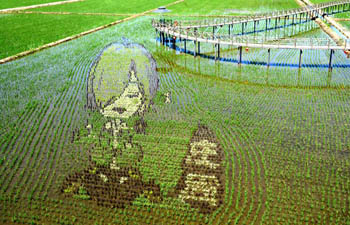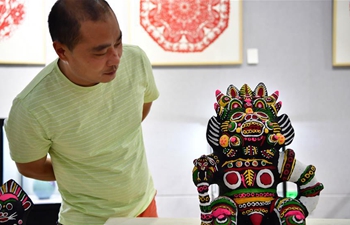TOKYO, June 9 (Xinhua) -- Japan's parliament enacted on Friday a law allowing Japan's Emperor Akihito to step down and pass his duties over to Crown Prince Naruhito.
The law, designed specially for the reigning emperor, will make Emperor Akihito the first Japanese emperor who would relinquish the throne in around 200 years.
The timing of the abdication, according to the law, will be decided under a government ordinance within three years of the law's promulgation after consulting with the Imperial House Council.
Local media reported that the government eyes allowing the emperor to abdicate in December 2018 around the emperor's 85th birthday.
The nation's era name (gengo) which lasts for as long as the emperor is on the throne, will possibly change at the beginning of 2019, said the reports.
Japan's top government spokesperson, Chief Cabinet Secretary Yoshihide Suga, however, refrained from disclosing the likely timing of the abdication as well as the announcement of the new era's name at a press conference on Friday.
According to the new legislation, the emperor and his wife Empress Michiko would keep the honorific title of "heika" which means "Your Majesty," but the emperor will not be entitled to ascend the throne again or become a regent after the abdication.
The Emperor's Birthday holiday on Dec. 23 will be changed to Feb. 23, the birthday of Crown Prince Naruhito, said the legislation.
The legislation will also triple the annual budget allocation for the private expenses of Prince Akishino, who will become the first in line after his older brother ascend the throne.
Japanese Emperor Akihito ascended to the throne after the death in 1989 of his father Hirohito, posthumously known as Emperor Showa.
He indicated his wish to relinquish and hand over the throne to the crown prince in a rare video message last August, citing his age.
A six-member government panel was set up last September to hear opinions of experts on the constitution and to hold discussions on necessary legal changes to enable the emperor to abdicate and on the status of and treatment given to the retired emperor.
One of the major disputed points had been whether to create a permanent abdication system for every emperor, or just a mechanism to enable only the current emperor to abdicate.
The new legislation enacted on Friday allows Emperor Akihito to abdicate and Crown Prince Naruhito to ascend the throne as an exception to the 1947 Imperial House Law which lacks a provision on abdication.
Chief Cabinet Secretary Yoshihide Suga said on Friday that it was "difficult" to create a permanent abdication system, citing unforeseeable situations of the society, politics, and people's minds on the issue in the future.
With the enactment of the new law, debate is expected to ensue in parliament regarding the recognition of the branches of female members of the imperial family who marry commoners.
A committee of the upper house of Japan's parliament on Wednesday adopted a special resolution which was attached to the abdication law, and though non-binding, said that the government will "consider various issues to secure stable imperial succession, including creating female branches."
According to the 1947 Imperial House Law, females cannot ascend to the throne and must leave the imperial family when they marry commoners.
The number of Japanese imperial family members will drop to 18 upon the marriage of Princess Mako, the eldest grandchild of Emperor Akihito, who is expected to be engaged to a commoner this year.





